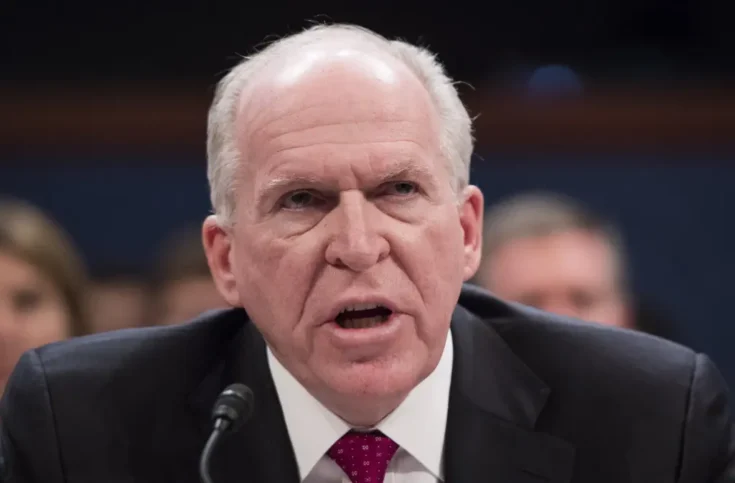A Former CIA Director’s Stark Warning on the Eve of Potential Political Shifts
In a recent and revealing interview with the Belgian state broadcaster RTBF, John Brennan, the former director of the Central Intelligence Agency under President Obama, delivered a critical evaluation of former President Donald Trump’s qualifications regarding national security matters. Brennan’s insights, drawn from his extensive experience in intelligence and national security, cast a sobering light on Trump’s approach to some of the most pressing geopolitical challenges of our time, particularly concerning Russia and Ukraine.
One of the most striking revelations from Brennan’s interview was his recollection of a pre-inauguration meeting with Trump in 2017, aimed at discussing national security. According to Brennan, Trump appeared dismissive of the intelligence community’s findings, especially regarding Russian interference in the 2016 presidential election. This skepticism towards the intelligence community’s assessments raises questions about the ability of a leader to make informed decisions without trust in the very agencies tasked with safeguarding national security.
Brennan’s critique did not stop at Trump’s skepticism. He expressed doubts about Trump’s overall qualifications for handling complex international relations and security issues. Highlighting Trump’s apparent lack of appreciation for the United States’ relationships with foreign allies and partners, Brennan pointed to a fundamental misunderstanding of the strategic importance of transatlantic relationships and NATO. This critique suggests a concerning gap in Trump’s grasp of global security dynamics, which are vital for the effective leadership of a superpower like the United States.

The Potential Risks to Ukraine and Beyond
One of the more alarming concerns raised by Brennan pertains to the ongoing conflict in Ukraine. He outlined a scenario in which Trump, if in power, could undermine Kyiv by withholding intelligence support or cutting off financial and military aid. Such actions, Brennan warned, would not only endanger Ukraine but also embolden Russian President Vladimir Putin, potentially leading to further aggression in Europe. This analysis underscores the broader implications of leadership decisions on global stability and the delicate balance of power that defines international relations.
It is important to note that Brennan has been a consistent critic of Trump, particularly regarding issues of honesty, personal interest, and adherence to democratic principles. Following the 2020 presidential election, Brennan expressed his intention to refrain from engaging with Trump, choosing instead to focus on the legal and historical judgment of Trump’s presidency. His criticisms, including those made in the recent interview, reflect a deep-seated concern for the principles and practices underpinning the United States’ national security apparatus.
While The Hill reached out to the Trump campaign for comment on Brennan’s latest remarks, the broader implications of Brennan’s critique merit significant attention. They raise critical questions about the qualifications necessary for effective national security leadership, the importance of trust in intelligence and diplomatic relationships, and the potential consequences of leadership decisions on international peace and stability.
As the United States navigates its complex geopolitical landscape, the insights of experienced professionals like John Brennan offer valuable perspectives on the challenges and responsibilities of leadership in national security. Whether one agrees with Brennan’s assessment or not, his critique highlights the crucial need for informed, strategic decision-making at the highest levels of government, particularly in an era marked by profound global uncertainties and threats.
Read More News:
- Tragic Loss: Remembering the Victims of the Southern Border Helicopter Crash
- Embracing Identity: Fin Affleck’s Courageous Step Forward at a Family Memorial
In conclusion, John Brennan’s critical evaluation of Donald Trump’s handling of national security matters serves as a stark reminder of the complexities and responsibilities inherent in presidential leadership. As the world continues to grapple with geopolitical tensions, the lessons drawn from such critiques will be essential for informing the choices of future leaders and ensuring the security and stability of the international order.
